20 Things You Must Know Before Visiting Morocco Travel Tips
More and more people are visiting Morocco every year. It’s a beautiful country, and as photographers and videographers, we had a field day. But on the flipside, there were also downsides to visiting especially as a woman. If you plan on going, here are a few pointers to help you prepare for your trip.
- Dress Appropriately
Overall, guys can dress however they like, but women need to dress more conservatively. Although you see many tourists wearing whatever they want, we chose to cover up as much as possible to avoid unwanted attention. Even if you’re traveling with a group of guys, you may still get harassed. Some of the girls in our group got groped on multiple occasions even though we were paired off with a male buddy. It was mostly really old men, and it happened more often in crowded places. When visiting mosques, you need to cover down to your wrists and ankles. For the ladies out there, it really helps to have a shawl / scarf handy in case you need it.
- Currency and Cost
More established shops will take credit card, but most smaller markets, street vendors, and cabs will not. Be ready with the local currency. The Moroccan Dirham (DEE-rahm) goes for roughly 9.6 Dirhams (DH) per 1 USD or 10 per 1 euro. We thought things would be cheaper in Morocco, but because of how touristy the country has become, the prices were comparable to Europe. Our tour guide recommended each person exchange 100 euros per day.
- ATMs Can Be Hit or Miss.
Exchange enough money when you get your chance. The front desk at your hotel may have money to exchange. Ours quickly ran out when our entire group was trying to get money exchanged. ATMs can run out of money. A few people from our group thought the ATM was giving an error and tried multiple times to take money out, but the ATM didn’t dispense while still charging it from the bank for every attempt. Also, traveler’s checks are pretty much useless in Morocco. It’s hard to find a place to cash them.
- Keep Correct Change with You
Moroccan cab drivers rarely “have change” when you need it. To avoid overpaying, keep your coins. Most of our cab rides within the city were roughly 30 Dirhams. The dilemma with keeping change though is that you will not be able to exchange it back when leaving the country. You want to keep correct change while you’re in the country, but you also want to spend it all before leaving.
- Learn to Haggle.
If you’re shopping in the markets or medinas, you will have to learn to haggle. I know some people have strong opinions about paying full price for the sake of “charity”, but selling is like their national sport and haggling is an integral part of their culture. More likely than not, they will still get the better deal, but keep in mind if you are willing to spend the time, you can get items for at least 25-50% of the starting price. Know what you’re willing to pay before you start the haggling process and walk out if you can’t get the price you want. They may call you back in multiple times.
Also, you may want to bargain with your cab drivers before you get in the cab. Most of our rides within the city were 30 DH. If they demand more, our guide told us to hand them the money and walk away. Luckily, that didn’t happen to us, because we always firmly set a price before the ride.
If you’re looking to buy a carpet or anything with a higher price tag, do your research before you head to Morocco. People get tricked into buying them as “an investment” to sell later all the time. Don’t fall for their sales tactics and the local guide’s added pressure to buy.
- Tipping
Have some change ready for tips. A good general rule of thumb is 1 DH at a local place and 3-5 DH at nicer places.
- Be Wary of Local Guides.
It’s definitely great to hire a local guide to help you get an inside perspective on the country and navigate through the maze of the medinas (old towns), but be sure you know what you’re getting yourself into. The local guides have built relationships with many different stores, and they are most likely getting a cut of the sales. Don’t be fooled when they say they are trying to help you haggle to get the best price. We were able to get better prices without them.
- Stay Away from Strangers Offering Free Tours or Directions.
Even if you don’t hire a local guide, there will be a lot of locals offering you tours while you’re walking around the markets and medinas. If you go with one of them you may end up completely lost and pressed to spend money. Most of the time they will ask for a tip afterward too. This is the same with asking for directions. A lot of them will offer to walk you to where you’re going but then ask for a tip. If you’re so inclined, always have money to pay them off or just plan ahead and ask your hotel or pull up some maps when you have WIFI.
- Fridays are Holy Days and Prepare for Holidays
Keep in mind that it is a Muslim country, so pay attention to their holidays otherwise you might be there when everything is closed. Also, most shops and attractions are closed on Friday since it’s their holy day. A friend of mine went during Ramadan and told me it was very difficult to eat meals. We happened to arrive in Morocco on Eid al-Adha, where they were slaughtering and sacrificing animals on the street. Shops were also closed that day, and most were closed the following day. Plus, it was a bloody mess, most of which we avoided. Below you can see what is usually a crowded marketplace is deserted.
- Careful What Water You Use
To stay on the safe side, drink bottled water and even use it to brush your teeth. Also, be careful to avoid using any ice when you’re out. The Grayl water bottle is really useful when you’re in Morocco if you don’t want to buy a ton of bottled water. If you don’t mind constantly buying bottled water, you can also use a soft bottle for easy use on the go.
- Pack Some Immodium
I don’t care how strong you think your stomach is, you should pack some Immodium just in case. At least a third of our group wasn’t feeling well after the first meal in Morocco. I popped a couple Immodium, and I was fine the next day. Others were not so fortunate.
- Watch Your Pockets
Most Moroccans are friendly and honest, but be careful about pickpockets in any major city especially in crowded places like the markets.
- What Language Do They Speak?
Moroccans speak a mixture of Arabic, Berber, English, and French. You’ll be fine with English in most of the larger cities, but you’ll probably need a translator in the rural parts of the country.
Here are a few basic Arabic words that came in handy:
Hello (Peace Be With You): Salam Alikome (salaam a eleikum)
Thank You: Choukran (shokran)
No Thank You: La Choukran (la shokran). This one is useful when you have a bunch of street vendors hassling you to buy something.
Watch Out: Balak. Although you won’t use this yourself, you’ll most likely hear this in the medinas or souks (outdoor markets). It will be said by locals coming by with a mule, motorcycle, or cart and is a warning to move to the side or get run over.
- Visiting Mosques:
If you’re hoping to visit Mosque in Morocco, you might be out of luck unless you’re Muslim. Most mosques are off-limits to non-Muslims, with the exception of the massive Hassan II Mosque in Casablanca. They are still beautiful to take photos from outside though!
- Alcohol, Drugs, and Parties?
Although most Moroccans are Muslims, yes, they still have all these. Hashish, an extract of the cannabis plant, is quite commonly offered to you in the streets. Contiki loves their parties, and we were told that only hotel bars had alcohol available for tourists, but we were surprised to find there were several bars and even nightclubs serving alcohol. We decided we didn’t want to pay 300 DH (30 euros) to get into a club that already appeared like a sausage fest from the outside. We were also told that it’s pretty typical for prostitutes to be hanging out at nightclubs there too. There was a special DJ guest that night, but normally the club was supposed to cost around 150-200 DH.
- Do I Need a Visa or Vaccines?
Almost all English-speaking countries (except South Africa) do not require visas to enter the country. The CDC also doesn’t require any vaccines although many would recommend Hepatitis A and Typhoid shots. Find out more details from CDC here.
- Have the Right Converters.
Don’t get stuck in Morocco without a way to charge all your electronics. We recommend picking up one of these so that you have options for wherever you travel and additional outlets in case there aren’t many in the hotel room. Morocco uses the following: Voltage: 220 V, Frequency: 50 Hz, Power sockets: type C / E. If you have something that works in Europe, then it will be the same.
- Ask Before Taking Photos (And You May Have to Pay).
When you’re walking through the markets, be careful about taking photos of people and shops. Unless you are purchasing something, they may get angry at you and even demand money for the photos. When we took photos of the snake charmers, we paid 20 DH. Some may even hassle you for more, so it’s good to first establish a price before taking a photo.
- Bring Toilet Paper With You EVERYWHERE.
Don’t expect bathrooms to have toilet paper. Be prepared with your own and also have some hand sanitizer available. A lot of public restrooms will have a small fee as well so if you see an attendant be sure to ask before using the bathroom and getting stuck with someone asking you for money afterward.
- Souvenirs to Bring Home:
Leather and carpets are well known in Fez. Fragrances, oils, and spices (like saffron) are famous in Marrakech. If you’re buying saffron, make sure you’re buying the real thing. Many places sell artificial saffron for dirt cheap or mix the real with the fake stuff. You can ask them to do a demonstration in water. If it colors the water yellow, it’s real, if it turns reddish, it’s the dye coming out from the artificial saffron. You can also smell the difference (should smell more herbal), or ask for a couple strands to put in your mouth and spit it onto a tissue to see what color it produces.
Overall, Morocco is a beautiful country, and we’re happy to have experienced it. I hope this doesn’t scare you from visiting. As long as you’re completely aware of your surroundings, and you go in with the right mindset and expectations, you can have a wonderful experience.
Follow us : @nakazakihero
Thanks For Reading and Following us
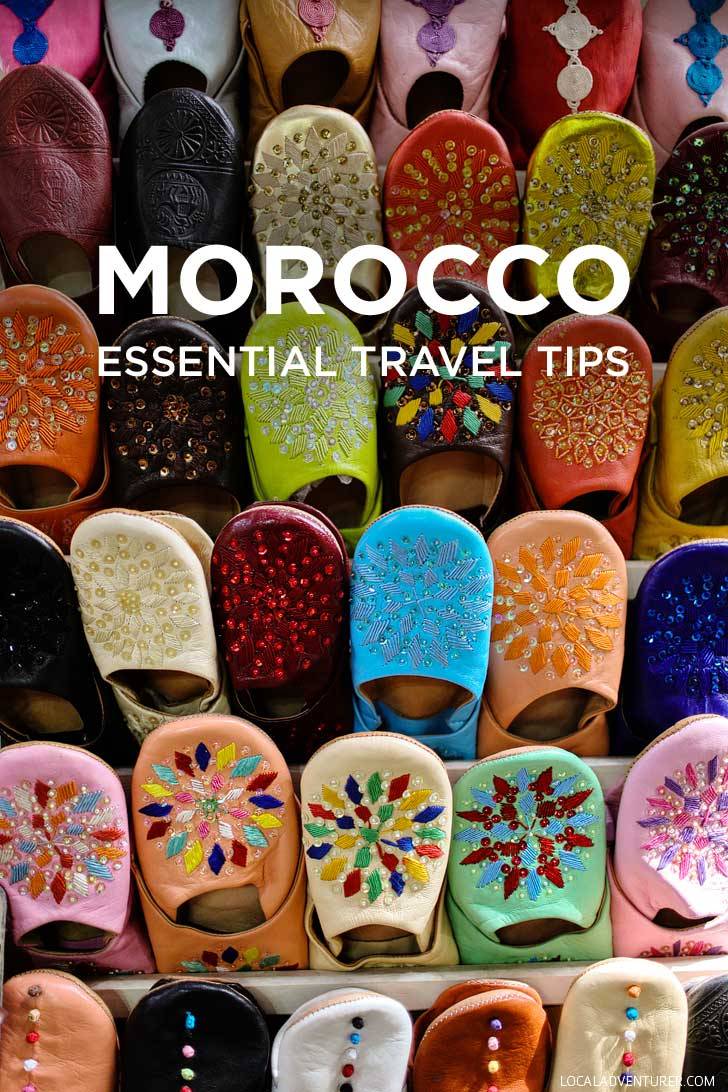

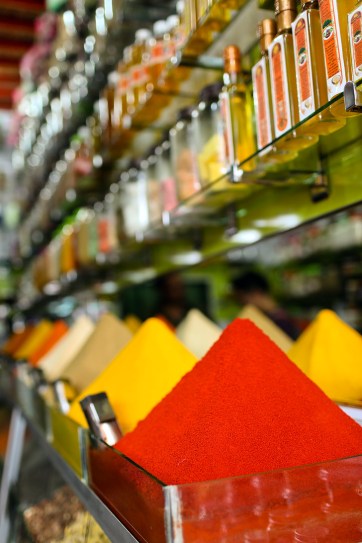

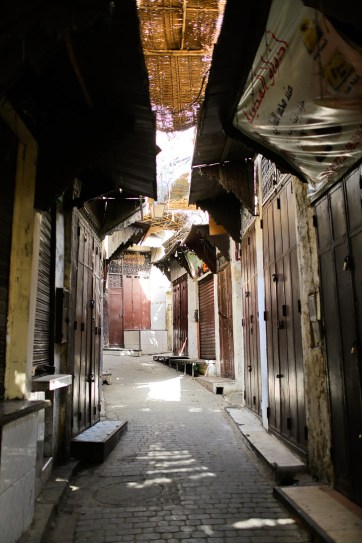

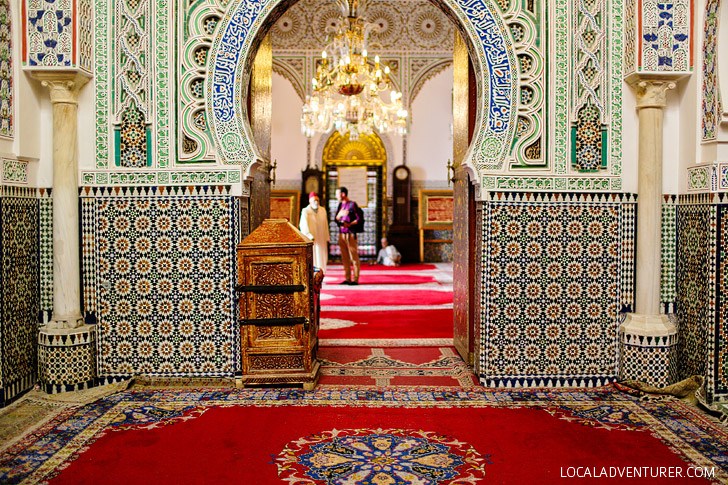

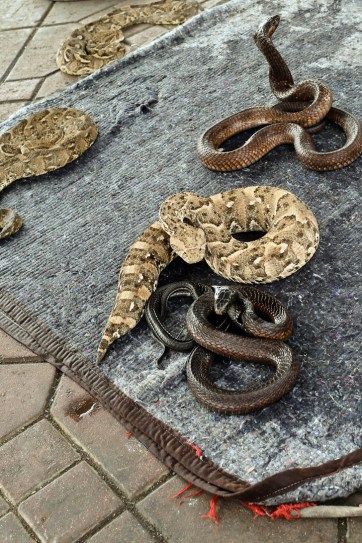

Source: http://localadventurer.com/visiting-morocco-travel-tips/
Not indicating that the content you copy/paste is not your original work could be seen as plagiarism.
Some tips to share content and add value:
Repeated plagiarized posts are considered spam. Spam is discouraged by the community, and may result in action from the cheetah bot.
Creative Commons: If you are posting content under a Creative Commons license, please attribute and link according to the specific license. If you are posting content under CC0 or Public Domain please consider noting that at the end of your post.
If you are actually the original author, please do reply to let us know!
Thank You!